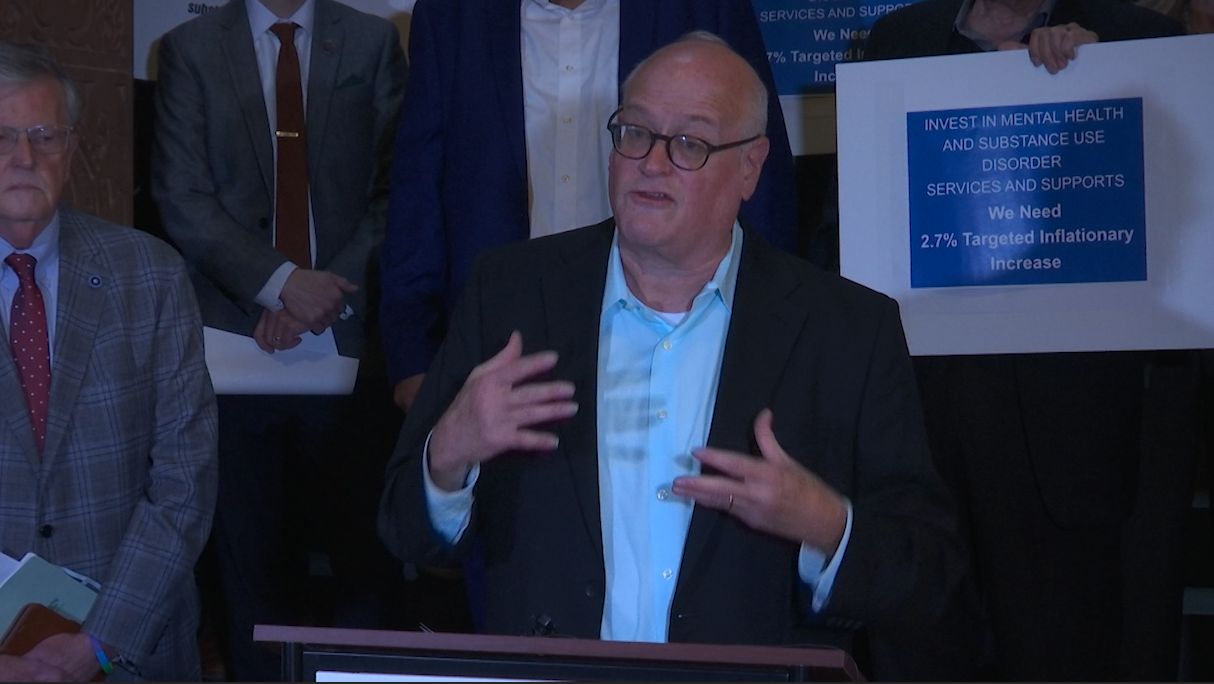Mental health advocates were back in Albany Wednesday three months before the start of the legislative session, pleading with the state for a 2.7% inflationary increase to human services funding. They laid out how New York individuals and families are in crisis with massive waitlists, high turnover rates and limited funds to make progress in addressing those issues.
Fearing the impact of federal cuts on other areas of funding and a state budget sure to be battered by them, advocates are calling on Gov. Kathy Hochul and budget officials to provide the increase, and to look elsewhere as they attempt to absorb the impact of those cuts set to ramp up by late next year.
Glenn Liebman, CEO of the Mental Health Association in New York State, is working to get the message across that if these programs aren’t funded properly, taxpayers will end up footing the bill somewhere else at a time when Hochul’s administration continues to drive home an affordability message.
“We’re here to save the state money,” Liebman said. “This 2.7% investment will save literally millions of dollars from people who won’t end up in homelessness, or end up incarcerated, or end up in emergency rooms.”
Bill Gettman, chief executive officer of Northern Rivers, stressed that while the call for an increase across human services is not new, in fact the same advocates have previously endured years with no bump in funding, the need is only growing more acute as struggling facilities brace for an even rockier road ahead.
“The providers here if we go out of business, it’s going to be someone else’s responsibility, its going to fall to the state and the state is going to have to pay a lot more money in their system to care for the folks we care for every day,” he said. “Waitlists are up, at Northern Rivers we have almost a thousand individuals who need services, across New York state we have vacant jobs, and turnover rates somewhere near 35%, there are thousands of vacant jobs in the mental health field.”
Liebman emphasized that turnover rate won’t level off until what he described as a mission driven workforce is paid enough money to remain in their preferred field.
“Mission driven doesn’t pay the rent, it doesn’t pay student loans so thats why we’re asking for this 2.7% increase,” he said.
It is still early in the budget process. The call letter to state agencies directing them to compile their requests by Oct. 24 only went out last week, but that letter stressed the governor’s continued focus on affordability despite acknowledging the significant challenges which lie ahead.

